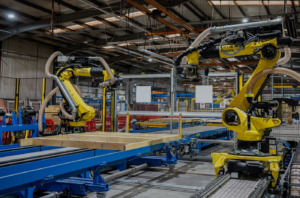Feature: The majority of UK organisations will miss net zero targets
Ahead of the launch of a report that finds 59% of UK organisations will miss the government’s 2050 net zero targets, Chloe Coules speaks to Dr Chris Brauer and Microsoft about what is preventing action on climate change.
New research released today by Dr Chris Brauer, director of innovation in the Institute of Management Studies (IMS) at Goldsmiths, University of London, in partnership with Microsoft, has highlighted how far organisations have to go to turn ambition on sustainability into action.
The report finds that only 41% of UK organisations will meet the government’s 2050 net zero targets without urgent action to reduce carbon emissions, with nearly three quarters of organisations currently having a ‘one foot in and one foot out’ approach to sustainability.
Based on online surveys of 1,707 UK business leaders and 2,153 employees, the research report includes insights from leading British organisations, as well as prominent sustainable business experts from across government, industry and academia.
The report characterises organisations as ‘leaders’, ‘aspirational’ and ‘stragglers’ on climate action, through a range of sustainability measures, and warns that just 11% of UK organisations can be considered sustainability ‘leaders’, who are currently on track to meet net zero and have aligned sustainability goals with economic growth.
Hugh Milward, general manager for corporate, external and legal at Microsoft UK, explains: ‘I think what our research reveals is this really impressive desire amongst UK leaders, but also employees as well, to build a greener future for everyone, but I think what we’ve certainly found in this research is that making pledges is very much the easy part. There really needs to be strong ambition matched with lasting action in order to make sure that we can actually have the impact we want.’
However, Dr Chris Brauer is still optimistic that UK organisations will be able to accelerate their climate action through learning from the organisations that have been successful: ‘You can either look at this 59% that aren’t going to achieve net zero by 2050 on their current trajectory, or you can look at the pathways that the 41% are establishing that give us really strong ingredients as to what makes a sensible sustainability strategy where real progress can be made.’
The report outlines the main obstacles that UK organisations cite for carbon reduction, including turning strategy into action, clear government guidance and in-house skills, followed by financing and the availability of technology.
It also finds that leaders on sustainability are able to unlock funding for carbon reduction, as well as using carbon measurement, machine learning and ‘digital twin’ technologies to accelerate their journey to net zero.
Dr Chris Brauer argues: ‘UK organisations have strong net zero ambitions. But to truly address the climate emergency before us, actions must speak louder than words. Today’s findings don’t just call for progress, they outline a practical short- and long-term blueprint to help organisations accelerate net zero progress. If organisations can prioritise areas such as cross-sector collaboration, stakeholder buy-in, in-house expertise and technology to track carbon reduction progress, the positive environmental impact could be seismic.’

Supporting small businesses
The report found that large organisations in the UK are in a much better position to deliver on their net zero ambitions, with a much healthier 91% of organisations with over 250 employees expected to achieve net zero by 2050, and most also predicted to be carbon neutral by 2035.
Dr Chris Brauer explains that some smaller businesses have struggled to unlock the resources needed to make progress towards net zero: ‘Organisations have been keen to raise the ambition – and it’s almost a race between companies to better express the level of their ambition and their motivation to get [to net zero] – but what hasn’t necessarily followed as easily in some organisations is the ability to make the business cases necessary to unlock the funding and the investment for sustainability.’
Hugh Milward argues that this needs to be addressed with a whole-systems approach: ‘There is an expectation now that government will step in on a whole range of factors in society, but I think the reality is that there is a need for it to be more than just government. It needs to be businesses sharing their learnings with other businesses.’
He adds: ‘There is definitely a role for government to play, alongside NGOs and the media. If we came together with a much broader and more holistic systems-wide approach to this kind of thing, with a set of agreed ways in which we talk about it, we are going to make more progress more effectively.’
Sourcing skills
The report highlights that one of the biggest challenges and key ingredients to achieving net zero is talent.
The research concludes that a firm’s sustainability performance is increasingly key to attracting and retaining top talent, with 67% of UK employees saying they expect their employer to take action to reduce its climate footprint.
‘Nobody wants to work at a company that has got both feet out of the sustainability conversation, because it’s not only lacking imagination and foresight, but it is less likely that that organisation is going to succeed in an increasingly competitive environment that prioritises and values sustainability and the practises of organisations, as well as the products and services that we generate in the economy. We surveyed both organisational leaders and workforces, and we could see very clearly that people that are working in strategic leader organisations are far more likely to be confident that their organisation is going to continue to grow and has a bright future,’ says Chris.
However, this poses a challenge for the organisations that lag behind on climate action, as without attracting new talent they will continue to struggle to implement their sustainability strategies.
Hugh Milward explains that in order to attract the talent needed to become sustainability leaders, organisations need to set out more clearly for their own employees what their strategy is and how they are going to implement it, which will raise the organisation’s ambition and enfranchise the employees in a way that is crucial to moving forward.

Making progress
Microsoft highlights that continuing to develop new technologies and improve our sustainability strategies is crucial to moving forward.
Hugh Milward explains that organisations need to move beyond offsetting and invest in research and development: ‘Simple offsetting is not the solution to anything because it just encourages people to continue to emit and gives them a false comfort zone that what they are doing is okay – it’s not okay. There still needs to be a level of research that actually drives the market forward in being able to make real progress in this space.’
He also explains that Microsoft is going into COP26 with the message that a more multilateral and standardised approach to sustainability is needed, with clear measurement so organisations know exactly where they are on carbon reduction.
Clare Barclay, CEO of Microsoft UK, comments: ‘If the UK is to meet its net zero ambitions, public and private sectors need to join forces to define the meaning of real net zero, agree how to measure progress and build markets that can deliver a just, prosperous future for everyone.
‘Technology will play a key role in addressing these challenges and it’s clear from our research that those organisations that have embedded technology in the heart of their strategies are the ones that have made the most significant progress against their sustainability goals. And whilst it is encouraging that so many of the organisations surveyed are taking the threat of climate change seriously, the time has come to move from ambition to action. We must work collectively to accelerate our journey to net zero.’
Photos by Blake Wisz and Piero Nigro















